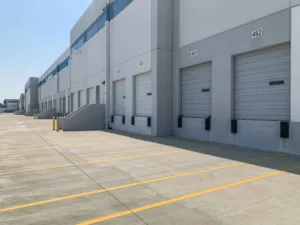Real estate investing is a strategic game that requires a fine balance between seizing opportunities and mitigating risks. One of the critical areas where this balance plays out is in the acquisition of land. Overpaying for land can significantly impact the profitability of your investment. However, with rigorous due diligence, investors can navigate the complexities of real estate transactions to ensure they get the best value for their money. Here’s how due diligence is your best defense against overpaying in the real estate market.
Understanding Due Diligence
Due diligence in self storage investing is a comprehensive process involving the investigation and evaluation of a property before finalizing a purchase. It’s your opportunity to verify the details of the property, understand its true value, and identify any potential risks or issues. Due diligence covers several key areas, including legal, financial, environmental, and physical aspects of the property.
Steps to Perform Due Diligence
1. Legal Verification
Ensure the land has a clear title, free from disputes or liens. Check the property’s zoning regulations to understand what you can and cannot do with the land. It’s also crucial to verify any easements, rights of way, or other restrictions that could affect the property’s value or your intended use.
2. Financial Analysis
Conduct a thorough financial analysis to understand the land’s market value. This involves comparing similar properties in the area, understanding current market trends, and evaluating the property’s price history. Don’t rely solely on the seller’s asking price; use independent appraisals to determine the land’s fair market value.
3. Environmental Assessments
Environmental due diligence is crucial to identify any contamination or environmental hazards on the property. This may involve soil tests, checking for the presence of hazardous materials, and understanding the land’s flood risk. Environmental issues can be costly to remediate and can affect the property’s value and usability.
4. Physical Inspection
Conduct a comprehensive physical inspection of the property. This includes checking the topography, soil condition, access to utilities, and any existing structures on the land. For existing facilities, consider the condition, expected repairs and maintenance costs, and potential upgrades. The physical characteristics of the property can significantly impact its value and potential development costs.
5. Review of Plans and Permits
If you’re buying land for development, it’s essential to review any existing plans and permits. This can give you an insight into the potential for the property and any hurdles you might face in obtaining permits for your intended use.
6. Assessing The Local Customer
When considering the purchase of an existing self storage facility, or building one, consider doing research in the local area around the prospective property. Knowing your target demographic can help you understand the correct business model to use, what your customers would be looking for in a self storage unit, and ultimately can help you project the value of the property.
Negotiating Based on Findings
Armed with the information from your due diligence, you’re in a strong position to negotiate the purchase price. If your investigations reveal issues that could affect the property’s value or increase your costs, use these findings to negotiate a lower price. Remember, the goal is not just to get the best price but to ensure that you’re making a sound investment.
Avoiding Common Pitfalls
Due diligence can help you avoid common pitfalls such as overestimating the development potential of the land, underestimating remediation costs, or missing legal encumbrances that could restrict your use of the property. By taking a thorough and methodical approach to due diligence, you can make informed decisions that protect your investment.
Conclusion
Due diligence is an essential process in self storage investing that can save you from overpaying for land. By carefully examining all aspects of the property, you can ensure that you fully understand its value and potential challenges. This knowledge puts you in a strong position to negotiate effectively and make sound investment decisions. Remember, in the world of real estate investing, information is power, and due diligence is the key to unlocking it.





